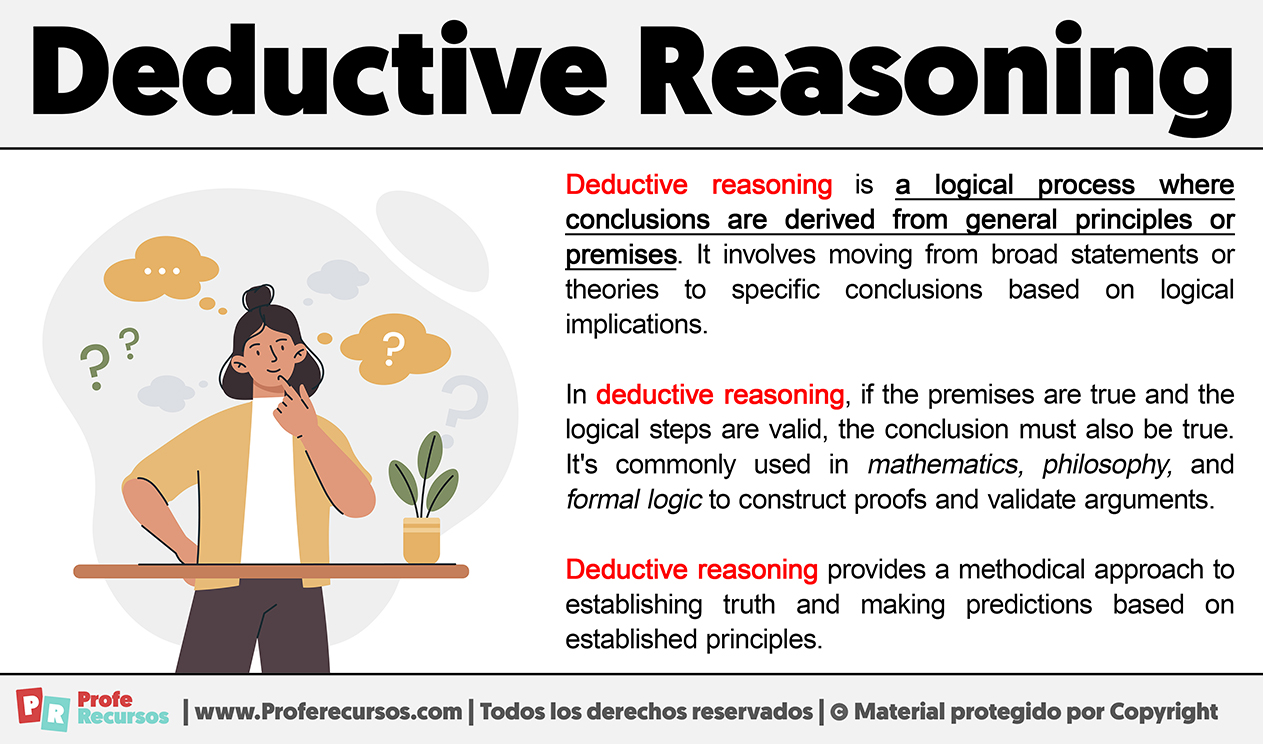Deductive reasoning is a logical process where conclusions are derived from general principles or premises. It involves moving from broad statements or theories to specific conclusions based on logical implications.
In deductive reasoning, if the premises are true and the logical steps are valid, the conclusion must also be true. It’s commonly used in mathematics, philosophy, and formal logic to construct proofs and validate arguments.
Deductive reasoning provides a methodical approach to establishing truth and making predictions based on established principles.


